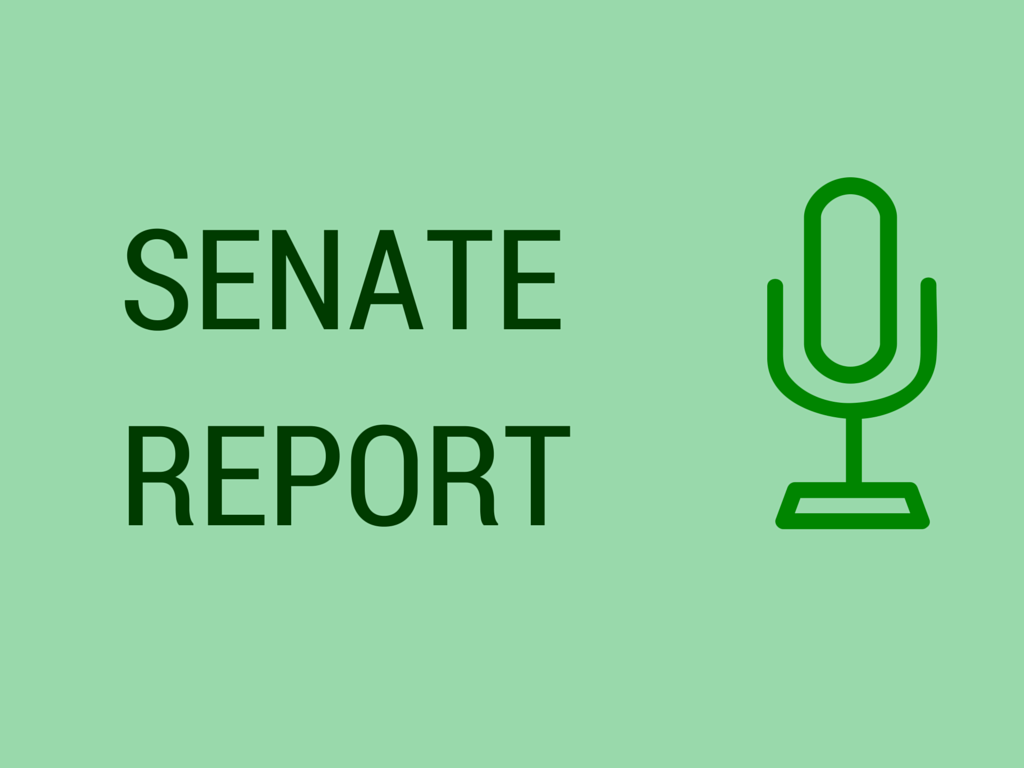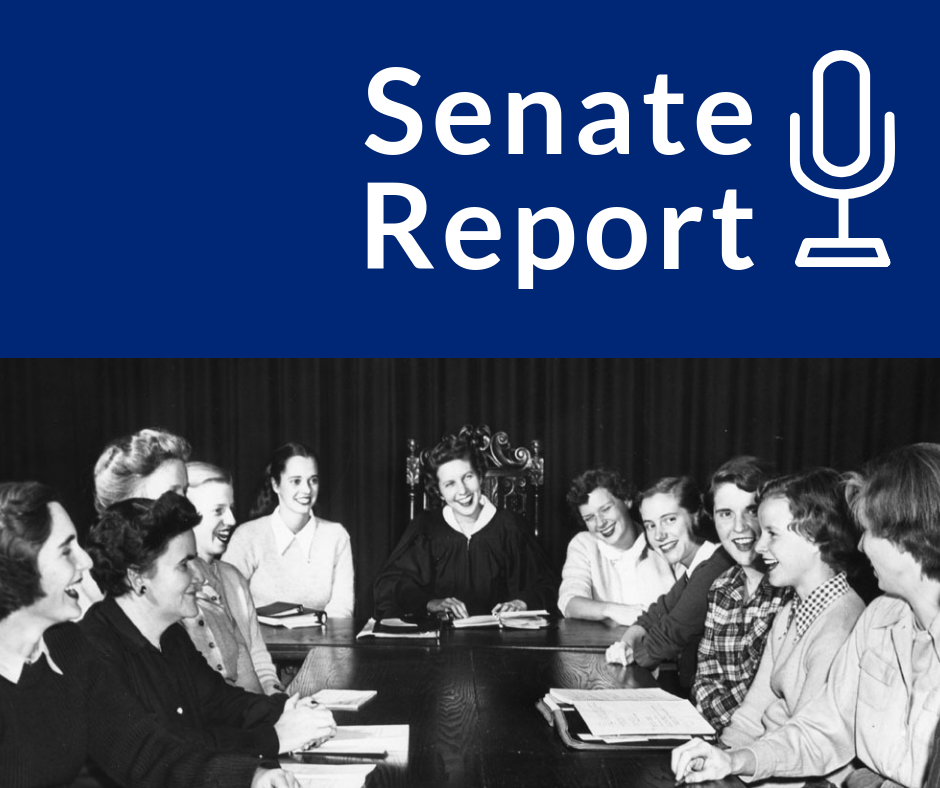Student Leadership Stipend presentation
Suzanne Barth ’16, a student member of the Student Leadership Stipend Committee (SLSC), updated the Wellesley community at the Senate meeting. Although the committee has made progress towards the goal of student leader compensation, nothing has changed yet. Wellesley is now the only college not to compensate its RAs and HPs. Student leaders are not officially compensated, so student organizations do have the option of donating 10 percent of their leftover funds to student leaders. For the past four years, the committee has been working towards changing this policy. College Government officials do not apply because they are not part of residential life. SLSC is also working towards providing all student leaders, not only those on financial aid, with compensation. This will reduce the amount of money per student, but will ensure the money is distributed more evenly.
Sexual Misconduct Policy change
This semester, the College has officially changed its sexual misconduct policy, which governs relationships between students and College faculty. The previous policy stated that a student may be in a romantic or sexual relationship with a faculty member so long as they don’t assume a supervisory position. The College has now changed this policy to view all relationships between any faculty member and student as inappropriate. Dean DeMeis views the change as indicative that the College now has a better understanding of power dynamics. This new policy is typical for most universities. Dean DeMeis also acknowledges the fact that sexual harassment and assault are realities on campus, and the policy aims to better deal with these instances. CG President Hana Glasser suggested that it would be worthwhile to have an open talk with students and faculty about sexual assault and harassment, and what this policy change might mean to each constituency.
Elections Committee update
Students who are interested in the election process are encouraged to attend one of two information session coming up on March 12 and 16. Students who plan to run in the elections must attend one of the two sessions. Candidate materials are due electronically at noon on Mar. 19, and Apr. 1 marks the beginning of campaign week. House Council and College Government debates have been combined into one event which will be held on Apr. 6. The next day is Candidate “crawl,” which is a chance for candidates to target smaller student audiences by visiting places such as residential halls. Apr. 9 is election day, and the first Senate hosted by the new cabinet will be Apr. 27. College Government has also reformed the campaign finance policy. Each House Council candidate will now be provided with a “campaign kit” valued at $25. If they choose not to accept the kit, they can exchange it for its monetary value. Each CG candidate will be provided the “campaign kit” as well as an extra $25 in cash. Also, any Wellesley student can propose a ballot initiative, which will then be added to the ballot and can be voted on during election day. In order to make it on the ballot, a ballot initiative must have the support of at least five percent of the student population. The student(s) must also present at Senate twice to propose their idea to the community.
Improving email communication
Katelyn Campbell ’17 discussed ways to improve email communication on campus. Currently, students are aggressively spammed on a daily basis, and it is difficult to filter emails without missing out on important events or information. There is currently a spamming policy in place, implemented by SPEC. An organization can officially be fined up to $50 for violating their spamming policy, but the logistics of the fining are not clear. Students are currently working on or proposing email alternatives such as a Guidebook app or an interactive calendar to help ease the pressure off students’ email accounts.







